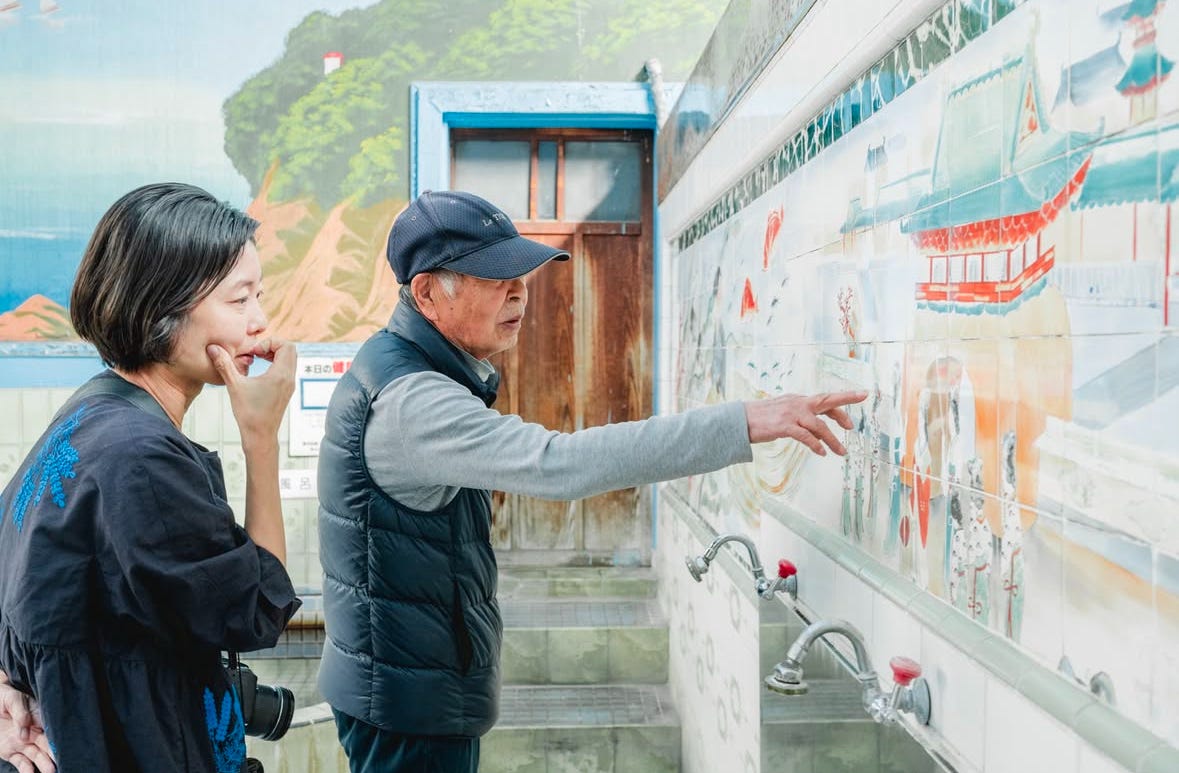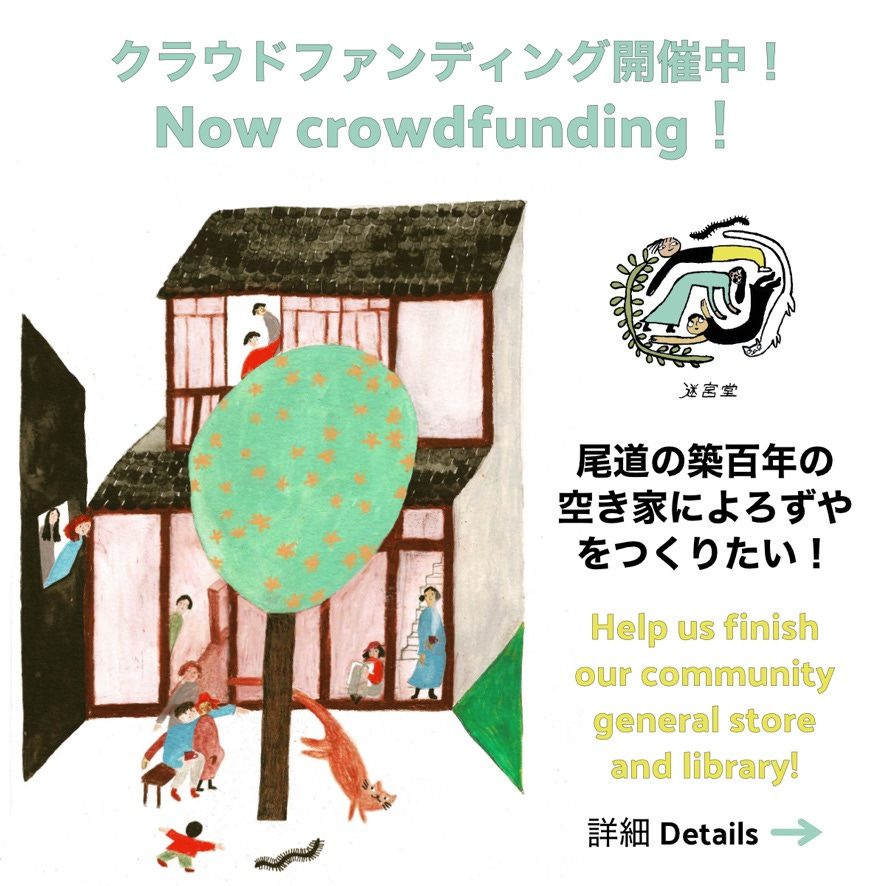Inari-yu wins top UNESCO prize in Asia
A step forward in our bathhouse work; Onomichi fundraising making progress
Exciting news—UNESCO chose my organization’s restoration project at Inari-yu bathhouse in Tokyo for the 2024 Award of Excellence in its Asia-Pacific Awards for Cultural Heritage Conservation! We started Sento & Neighborhood five years ago to pursue this project and poured an enormous amount of energy into it, so it is immensely gratifying to receive an international award like this.
Here’s the link to the announcement, with Inari-yu atop a list of eight projects in China, Thailand, India, and New Zealand that were recognized from a pool of 52 applicants. Receiving the top award was not what I had in mind when I rushed to the central post office in Tokyo at 9 PM on a Sunday in pouring rain to send the application to Bangkok, but sometimes just going for it pays off!
My own theory of how to build Sento & Neighborhood as an organization has always been 1) succeed on a local scale, 2) earn recognition on a global scale, and 3) build partnerships that unlock the capital we need to make a wider impact. If we miss our chance in the second half of this decade, a lot of the public baths we want to save will be gone. I have always been optimistic that we would achieve each of these steps, and this award makes me feel that if we play our cards right in 2025, that third step might be within reach.1
In the meantime, we’ve been continuing our fieldwork and documentation of more than 20 baths in Kita Ward, Tokyo. Ten days ago we did our seventh community workshop of the year at Iwa-no-yu, a miraculous bath that has endured in Iwabuchi, an old neighborhood on the northern edge of Tokyo.
There’s a feeling of wonder that comes when emerging out of the subway 25 minutes from the urban core to find places like this, with an owner who still chucks logs into the boiler and has kept the original tiles and fittings intact; where the clientele seems to be entirely local, and when we put out the call, shows up on foot or bicycle to tell us about the neighborhood and play a little harmonica tune:
It’s definitely a sento I recommend you visit if you’re into Showa-era things. Better yet, come to our annual exhibition in February, which we’ll be holding at the shuttered liquor shop on the corner, seen in the video above. Perhaps you read my post a few months ago about “kakuuchi” watering holes—well, this place was the real deal: a little establishment next to the bath where the locals would stand around crates at the entrance and enjoy drinks together in the evenings. The old guys who joined our workshop told me what it was like when the products were stored in big jugs and barrels, and people would come with empty glass bottles to get fill-ups 180 milliliters at a time. There was sake, of course, but also soy sauce and vinegar, while the most popular drink was cheap shochu. It closed down about five years ago, but the space still survives untouched, right next to the bathhouse. We’re hoping an exhibition there might get the wheels turning to open the space up again.
Labyrinth House fundraising making progress!
I’m heading down to Onomichi tomorrow for another week of Labyrinth House construction. We’ve announced our crowdfunding on social media and in Japanese and we’re about two-thirds of the way to our goal, largely on the strength of medium and large donations from my readers and other supporters overseas. Thank you! Here’s the English announcement if you missed it:
I’ve sent our tenugui towel design and Onomichi cat calendar to the printers. I’m optimistic that we can reach our target with a lot of small donations as I get these cute gifts out the door. I set up some simple credit card checkout pages, so contributing is simple and takes two minutes. Just donate below and then reply to this email with your address and I’ll send some gifts in the mail for you at the end of the year.2
Contribute in dollars | Contribute in yen
$30/¥3,000: Onomichi cat calendar
$50/¥6,000: Calendar + original tenugui
$80/¥10,000: Calendar + tenugui + project booklet (2026) + name on supporter list
You can also contribute via PayPal, bank transfer, or Wise or subscribe via Substack, which counts as a project contribution:
My collaborator Yu Ohtani explained our motivations in a post earlier this month (my translation):
Onomichi has seen more and more businesses open that cater to tourists. But seemingly in inverse proportion to that energy, shops serving local residents have been closing down, and houses are being abandoned. The beautiful tourist spaces shroud the fact that spaces of everyday life are hollowing out. As a resident, this feels like a serious situation, and it’s clear we need new infrastructure that supports community life.
Usually when you start a shop, the first question is “how are you going to earn a profit?” We can’t compete with chain stores, but if we only sell items with higher profit margins, we’d no longer be serving everyday needs.
So we’ve decided from the start to try making a shop that doesn’t earn a profit. A place where the neighborhood gets together for tea, kids can buy candy, young people come up with their own events, visitors from overseas serve food from their home countries or help the neighbors with grocery shopping while they stay, or the temple priest can share local history. Many possibilities arise if we don’t care about earning a profit. People with money will contribute money, people with time will give time, and people with ideas will try out their ideas. Labyrinth House is an experiment to see if we can create such a place.
尾道は近年、観光客をターゲットとしたお店が次々と生まれています。が、その賑わいと反比例するようにひっそりと閉店していく地域のお店たち。そして空き家になる家々。キラキラと盛り上がる観光空間の裏でスカスカになる生活空間。一人の住人として「これはまずい!地域の生活と文化を支えるインフラが必要だ!」と感じていました。
しかし「お店」となると「どうやって儲けるの?」という話に普通はなるわけです。チェーン店の真似なんかできない。でも付加価値のある単価の高いものばかり揃えても生活から離れてしまう。
そこで私達はハナから「儲からない店」をつくってみよう、と思っています。町内の人々があつまってお茶会をしたり、子どもたちが駄菓子屋をやったり、若者が自分でイベントを企画したり、外国から訪ねてくる人が自国の料理を振る舞ったり、泊まる期間は近所の人たちの買い物を手伝ったり、お寺の住職さんが地域の歴史を話してくれたり。「儲ける」ことを前提としなければ、豊かな可能性がたくさん見えてくる。お金がある人がお金を出し、時間がある人が時間を出し、アイディアがあるひとがアイディアを試してみる。そんな形で近所の「お店」を作れないだろうか。そんな実験なのです。
A fun part of my work is that each of my projects has a different scheme: we partnered with a foundation for Inari-yu, but crowdfunding fits with the concept of Labyrinth House. We’re building a new urban commons with volunteer labor and a deep well of passion, so we’re appealing to our friends and supporters for help. We’d be grateful and honored if you send some love our way! I’d be happy to send some cat-induced smiles your way in return.
If you can help us grow Sento & Neighborhood, please get in touch.
If you’ve already made a donation and/or subscribed, I’ll reach out soon to ask if you want a calendar and towel, and where I should send them!










Congrats Sam!! So impressed with what you and the team have accomplished.
Hey Sam! I’m new to your work and interested if you have looked into big issues preventing/threatening sento preservation. The rumor in my family’s area was that an inheritance spat took down our beloved local (they couldn’t come to an agreement, it was torn down and turned into a coin parking lot — depressing, but much easier to split profits)